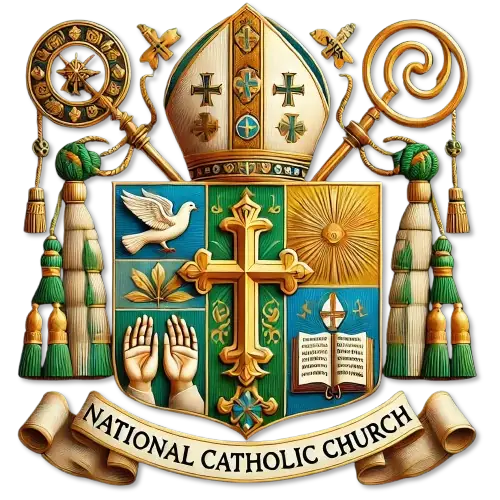Official Church Documents
Governance, Canonical Statutes, and Liturgical Regulations
Governance Policies
Preamble
The American National Catholic Church – Patriarchate of Utrecht is dedicated to embodying the teachings of Jesus Christ and upholding the traditions of the Apostolic Church. Our governance policies aim to ensure transparency, accountability, and effective stewardship of resources in service to our mission.
Organizational Structure
- The Patriarch serves as the spiritual leader and chief shepherd of the Church, guiding its mission and upholding its doctrines.
- The Patriarchate comprises the Patriarch, the Synod of Bishops, and the Curia.
- The Synod consists of all bishops within the Church and serves as the principal advisory body to the Patriarch.
- The Church is organized into dioceses, each led by a bishop appointed by the Patriarch.
- Parishes are local communities within dioceses, each led by a pastor appointed by the diocesan bishop.
Decision-Making Processes
- Decisions within the Synod of Bishops shall be made through prayerful discernment and consensus.
- In cases where consensus cannot be reached, decisions shall be made by a two-thirds majority vote.
Financial Stewardship
- The Church is committed to financial transparency and shall provide annual financial reports to its members.
- Parishes shall collect tithes and offerings to support their ministries and contribute to the diocesan fund.
- Regular audits shall be conducted to ensure the proper use of Church funds.
Canonical Statutes
Preamble
The Canonical Statutes are established to provide a framework for governance, discipline, and the administration of the sacraments, in fidelity to the teachings of Christ and the Apostolic Tradition.
Church Authority
- The Synod of Bishops serves as the principal advisory body to the Patriarch, comprising all bishops within the Church.
- The Synod shall convene annually to deliberate on matters of doctrine, liturgy, and governance.
- Decisions within the Synod are made through prayerful discernment and consensus.
Sacramental Life
- The sacraments are essential to the life of the Church and shall be administered in accordance with the approved liturgical texts and rites.
- Baptism shall be administered using the Trinitarian formula and by immersion or pouring.
- Confirmation shall be conferred by a bishop or a priest delegated by the bishop.
- The Eucharist shall be celebrated at least every Sunday and on Holy Days of Obligation.
- Marriage is a sacred covenant and shall be celebrated in accordance with the Church's matrimonial rites.
Temporal Goods
- The Church has the inherent right to acquire, retain, administer, and alienate temporal goods independently of civil power.
- Regular audits shall be conducted to ensure the proper use of Church funds.
Liturgical Regulations
Preamble
The liturgy is central to the life of the Church, serving as the primary means through which the faithful encounter the divine. These regulations ensure the reverent and consistent celebration of the liturgy across all parishes.
The Eucharist
- The Eucharist shall be celebrated at least every Sunday and on Holy Days of Obligation.
- The approved liturgical texts of the Church shall be used without alteration.
- Only bread made from wheat and wine made from grapes shall be used.
Liturgical Seasons
- The liturgical calendar, including Advent, Christmas, Lent, Easter, and Ordinary Time, shall be observed as prescribed.
- Liturgical colors appropriate to each season shall be used for vestments and altar coverings.
Music and Art
- Music used in the liturgy shall be sacred in nature, drawing from the Church's rich musical heritage.
- Art and icons used in worship spaces shall reflect the theological and aesthetic traditions of the Church.
Liturgical Participation
- The laity are encouraged to actively participate in the liturgy through responses, singing, and service roles.
- Qualified laypersons may serve as lectors, acolytes, and extraordinary ministers of Holy Communion, as needed.

|
Approved By:
✠ Most Reverend Peter Charles Francis, FSSPX, D.D.
Primate of the National Catholic Church
Metropolitan Archbishop of the United States
Patriarch of Utrecht
|